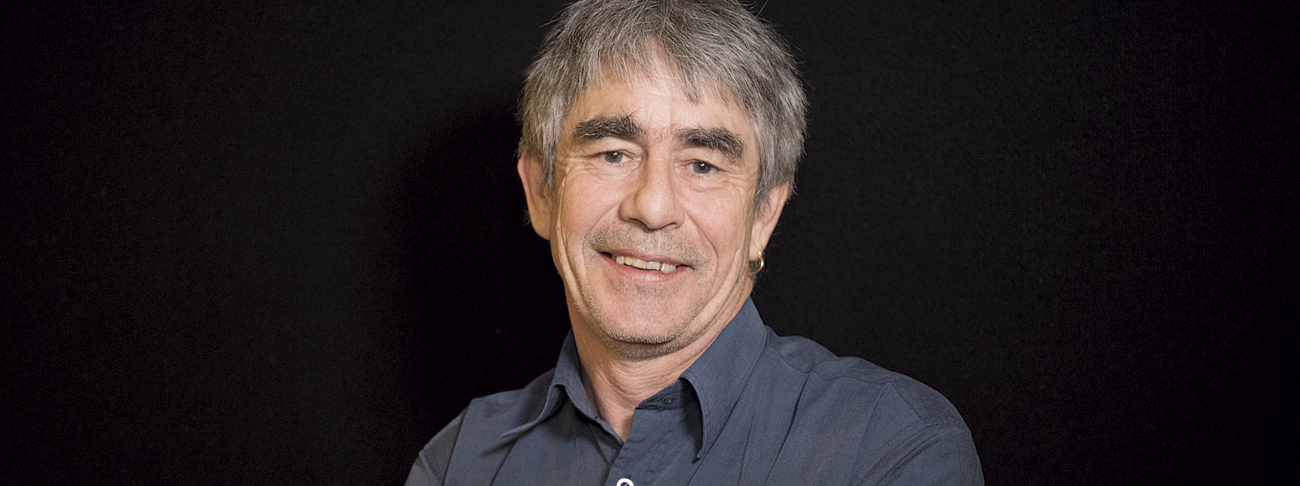
Grahame McCulloch, recently retired general secretary of Australia’s National Tertiary Education Union, addressed delegates at CAUT’s 85th Council meeting in November on the many common issues facing both organizations and countries, and on the strength and knowledge gained from each other.
Introduced by CAUT executive director David Robinson as a “great friend and mentor,” McCulloch acknowledged a long list of common characteristics of the two countries — including both being continental in scale, heavily urbanized with high immigration levels, and with population density across the land masses “quite sparse by economic standards” — but singled out CAUT as unique.
“There’s no doubt that CAUT is probably the best and strongest independent stand-alone union of academic staff in the world,” he said. “Your blend of industrial politics and professional rights is unique across the world and you should be very proud.”
While pointing to a shared “strong commitment to internationalism, a wide vision of human rights as well as the rights of academic workers and teachers, and a strong commitment to development and cooperation with our colleagues in other parts of the world,” McCulloch also sees a vast physical distance between Canada and Australia which has inevitably encouraged some philosophical difference: Australians are increasingly outraged by both old colonial ties and new strings connecting the United States to other commonwealth nations, including the so-called “Five Eyes” intelligence network of US-Canada-Great Britain-New Zealand-Australia.
“For many Australians,” McCulloch said, “the US alliance is an affront to our emerging independence. It distorts our economic and social priorities in the international arena, and is largely irrelevant to our place in Asia and particularly our close geographic and increasingly integrated economic relationship with China.”
Those economics are in part responsible for changes to the Australian tertiary education system, which mirror issues facing both Canadian universities and faculty unions.
As the single largest per capita enroller of international students in the world — 450,000 in the Australian university sector and another 150,000 in colleges — both domestic and international students now pay what are admittedly high fees by international standards, with a minimum of $30,000 per year for domestic students in the least expensive courses of study, and a minimum of $90,000 for international students.
But here they diverge from Canada: tuition for Australians is settled through “income contingent loans” from government that are paid back on exit from the system. Furthermore, repayment is means-tested and only starts when post-schooling income hits $50,000 per year.
“These trends have created a different dynamic in the management structure and orientation of the administrations in our universities,” McCulloch said. “It’s creating a deep, rising managerial culture. Our senior leaders once were scholars with administrative responsibilities, but increasingly they are managers, with their first obligation to the strategic plan of the central administration, or to the strategic plan of what the central administration sees the institution to be: a multinational corporation.”
“This drives competition between and within universities, and within and between different types of staff, and increasingly diminishes the significance of what ultimately universities should be about: collaboration.”
But Australian academics have found strength through numbers in a slightly different way than their Canadian counterparts. With no Rand formula in place, they must sign up individuals who come voluntarily to the union.
“The way we approach bargaining is quite unusual by both international and Australian standards,” McCulloch said. “Our bargaining is de facto industry-wide. The national union through a democratic process determines in each bargaining round minimum mandatory claims which must be made by all branches, and which are supplemented by local claims. We fix a minimum settlement point below which no branch is allowed to sign off on. It sounds a little Stalinist I know, but it isn’t in practice. This is a widely accepted process among our members.”
The process also works. “I don’t think there’s any doubt that we are the most successful collective bargaining union in Australia,” McCulloch said. “There isn’t one university not incorporated into our collective agreement streams. We only represent 3 per cent of the country’s workforce including non-union, but we represent 10 per cent of the collective agreements in the economy as a whole.”
But he also admitted that “the one thing we have not succeeded against is the scourge of hourly-paid casual employment. But I don’t think we’re alone in that respect.” His union is currently debating how best to move forward and transition hourly-paid casual teachers to, at minimum, fixed-term workers.
And he’s proud of what he calls NTEU’s “single biggest achievement, relatively unusual by world standards: every single one of our collective agreements has a requirement of a binding Aboriginal employment target which is legally enforceable if necessary through arbitration in the agreement. We’ve almost doubled the Aboriginal numbers in academic employment in Australia in the last 10 years.”